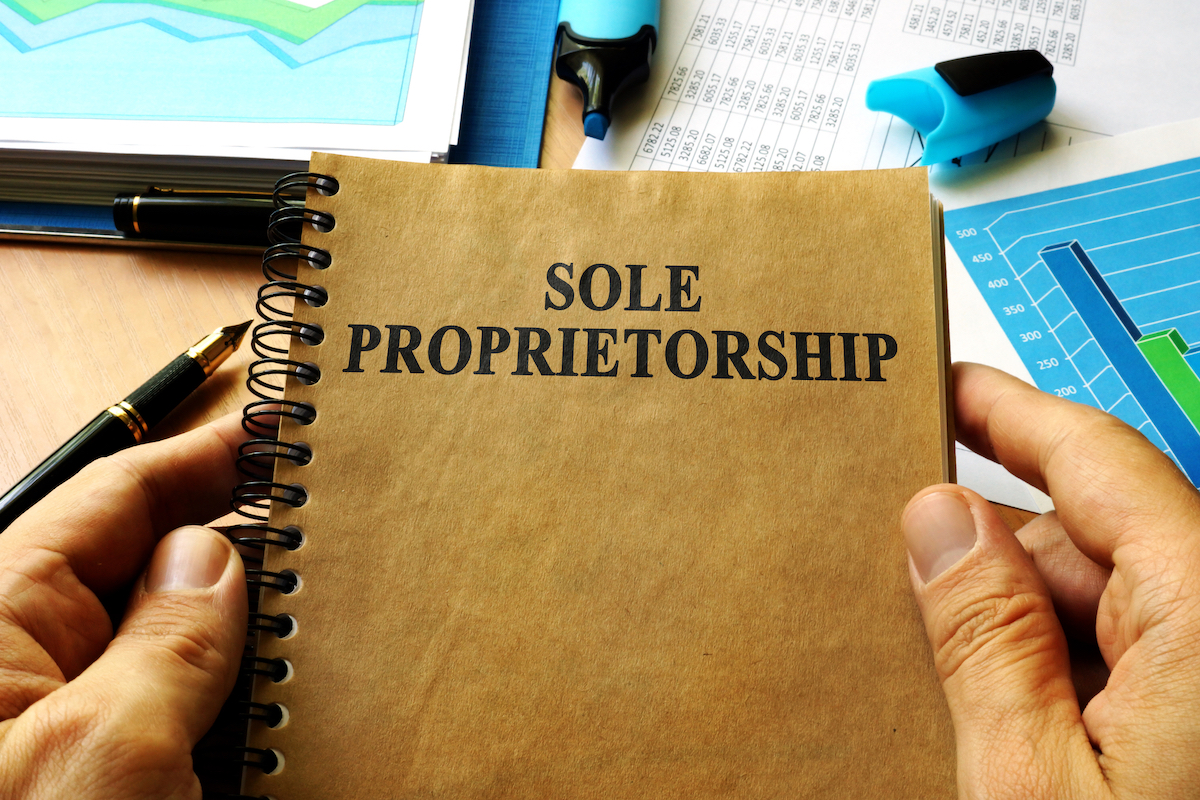In Canada, a business can operate as a sole proprietorship or a corporation. Most small businesses initially operate as sole proprietorships and later incorporate.
What is a sole proprietorship?
With a sole proprietorship, one person owns the business and makes all the decisions, assumes all the risks, claims all losses and receives all profits. In terms of taxation, the owner/operator and the business are one and the same. The owner pays personal income tax on profits earned. This is the easiest type of business to establish and is a popular choice for contractors, consultants, small businesses, freelancers and other self-employed individuals. A sole proprietor may choose to register a business name, operate under their own name or both.
What is a corporation?
A corporation is a separate legal entity. It can enter into contracts and own property in its own name, separately and distinctly from its owner(s). When forming a corporation, the owner(s) transfer money, property and/or services to the corporation in exchange for shares. To set up a corporation you need to complete articles of incorporation and send the documents to the appropriate provincial, territorial, or federal governments. Corporations have higher administrative costs (set up fees, paperwork) and require the help of professionals to handle complex tax filing requirements.
What are the benefits of incorporating a business?
Incorporation has many long-term benefits.
- Limited liability: Incorporation provides protection to owners and their families by limiting their personal liability. Personal assets of the owner(s) are protected against creditors and legal action taken against the corporation. An individual shareholder’s liability is limited to the amount they invested in the company.
- Lower tax rates: Corporations are taxed separately from their owners and at a lower rate than the individual tax rate. Corporations have the benefit of a small business deduction (SBD), further reducing income tax.
- Income tax deferral: Surplus profit can be reinvested into the business or used for other investments, allowing you to defer personal taxes on withdrawals. You can also receive income from an incorporated business in the form of dividends rather than salary, which will lower your tax bill.
- Lifetime capital gains exemption: When you sell a corporation, you’re selling an independent entity with its assets and liabilities. If you make a profit from the sale, the Lifetime Capital Gains exemption (LCGE) could save you from paying taxes on all or part of the profits. Many small business owners incorporate their business for this tax advantage alone.
- Income splitting: Incorporated businesses can pay dividends to shareholders/spouses/children, lowering the tax bracket of the company. Shareholders do not have to be employees to receive dividends.
- Easier access to capital: Corporations can borrow money at lower rates, raise money by selling shares/bonds to shareholders and more easily attract angel investors/venture capitalists.
- Continuous existence: You can buy and sell shares of a corporation without affecting the corporation’s existence. It continues to exist even if the shareholders die/leave the business or if the ownership of the business changes. It continues to exist unless it winds up, amalgamates, or gives up its charter.
- Increased business: People perceive corporations as more stable than unincorporated businesses. Some clients/customers will only do business with incorporated companies due to liability issues. Sole proprietorships are often overlooked in favour of incorporated businesses.
- Business name protection: When you incorporate a business, the business name you choose is reserved for your use. If you incorporate your business federally, you have the right to use your business name throughout the country. Sole proprietorships have no business name protection.
As a business grows so too do the tax liabilities and operational risks. These may indicate that it’s time to prep articles of incorporation. Business owners should consult with a lawyer and accountant to determine if the increased costs are offset by the benefits.
Considering incorporating your business? Need advice and/or assistance? Contact Cook and Company Chartered Professional Accountants. We are based out of Calgary, Alberta, serving clients across Canada and the United States. We provide high-quality tax, assurance, financial and succession planning services for a wide variety of privately-owned and managed companies. Contact us for a complimentary consultation.










